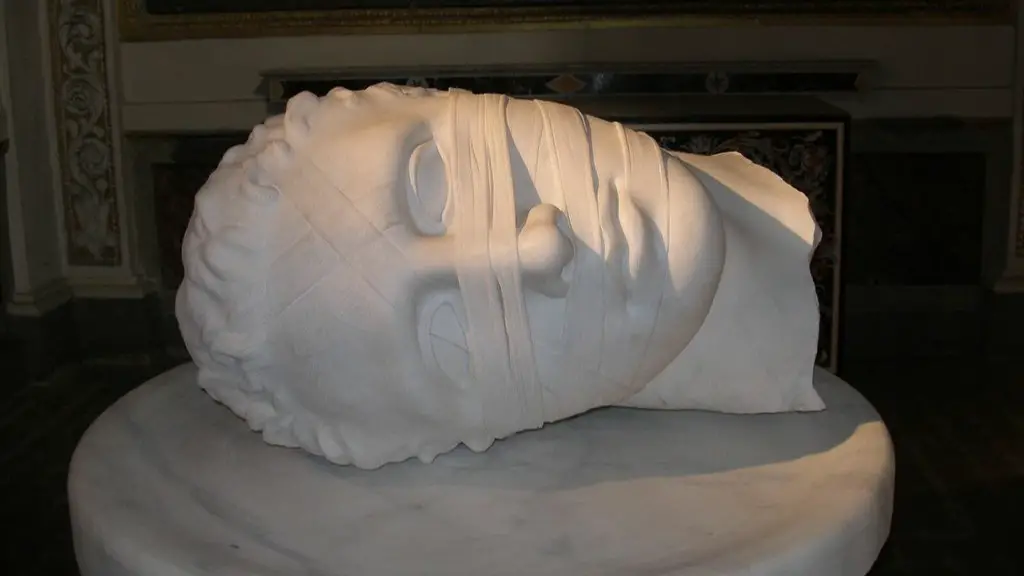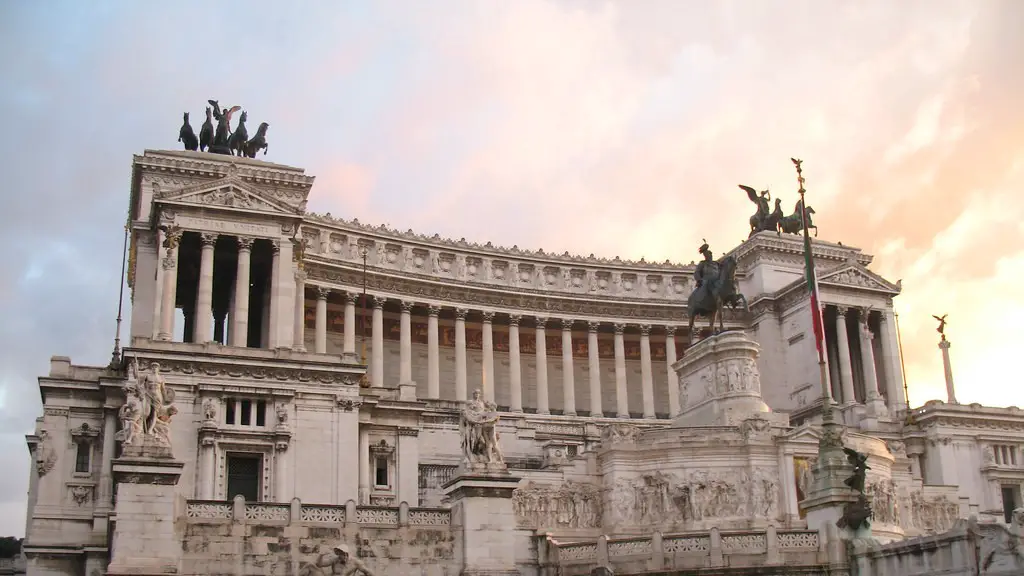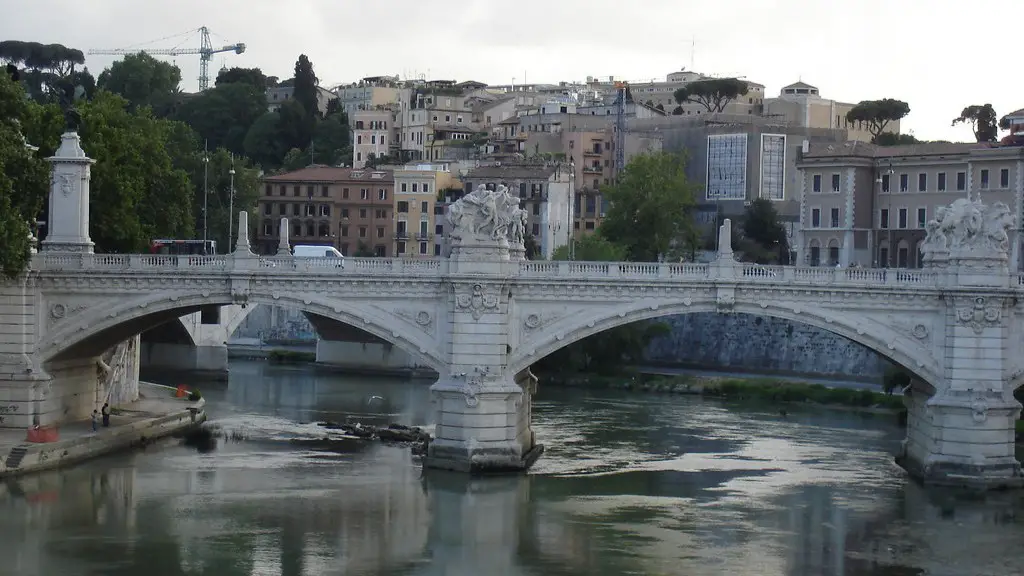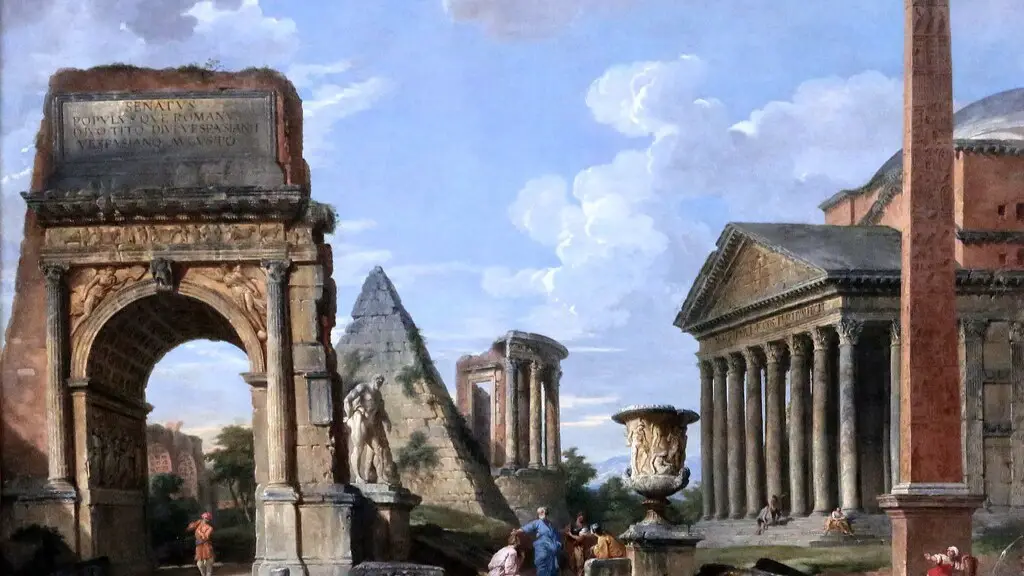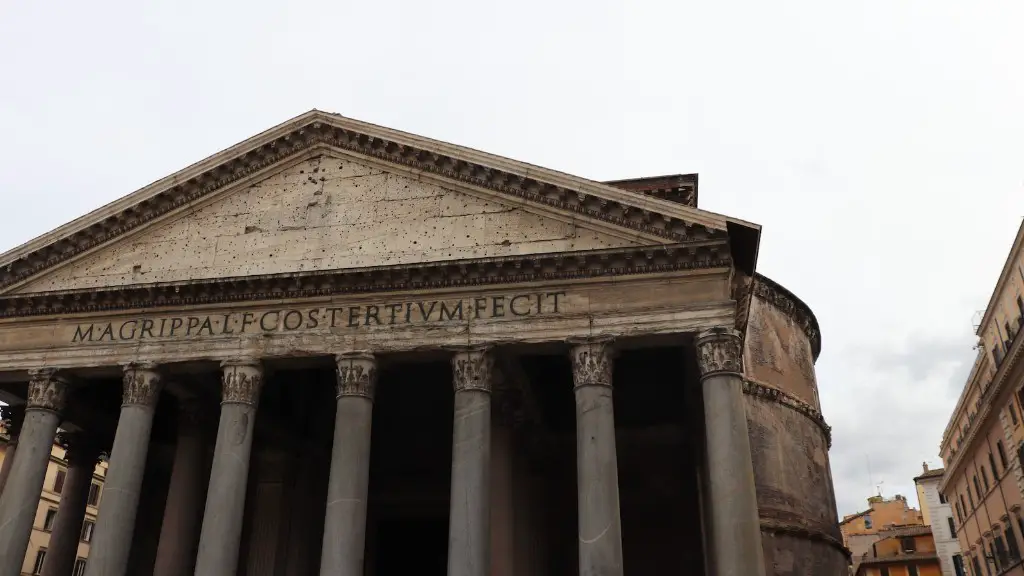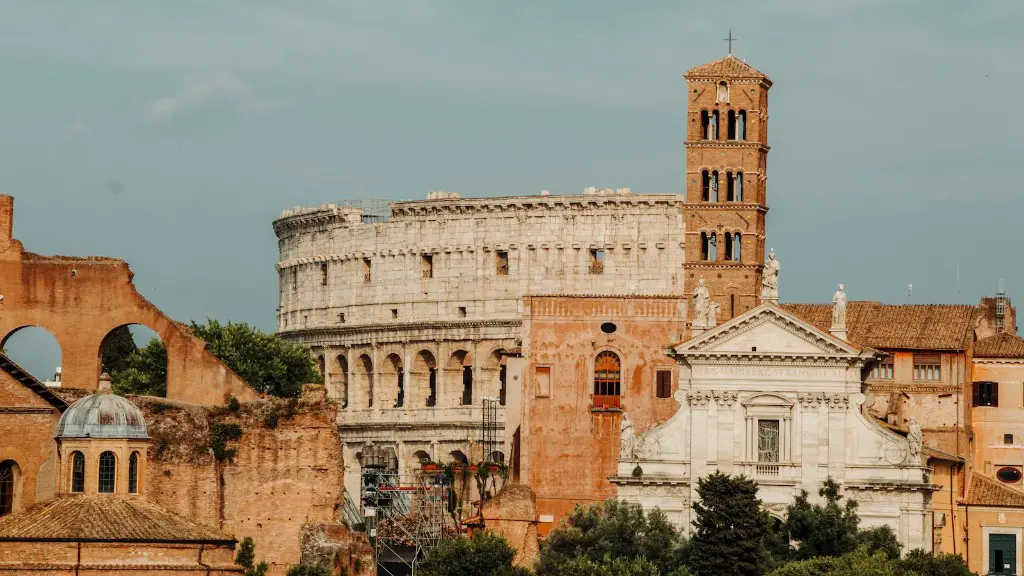Ancient Rome was one of the most influential and powerful empires of its time. They are known for their many accomplishments, one of which is their vast and significant contributions to inventions and technology. Some of the things that ancient Rome is credited with inventing include concrete, roads, and central heating.
Rome was responsible for a number of significant inventions including the arch, aqueducts and sewage systems, concrete, and the first forms of centralized government.
What inventions did the Romans invent?
The Roman Empire was responsible for a number of inventions and innovations that have had a lasting impact on the world. Here are 10 of them:
1. Cement: The Romans were the first to develop cement, which is used in the construction of buildings and infrastructure.
2. Aqueducts: The Romans built a network of aqueducts to bring water to urban areas. This was a major engineering feat and the aqueducts are still in use today.
3. Roads: The Romans built a system of roads that connected their empire. This was vital for trade and transportation. The roads were so well-built that many are still in use today.
4. Social care and welfare: The Romans had a system of social care and welfare that provided for the needy and elderly. This was an early form of the modern welfare state.
5. Julian calendar: The Romans developed the Julian calendar, which is still used in many parts of the world today.
6. Elements of surgery: The Romans were responsible for a number of innovations in surgery, such as the development of anesthesia and the use of surgical instruments.
7. Elements of the modern legal system: The Romans developed many of the
Concrete is a material that is made by mixing cement, sand, gravel and water. This mixture is then poured into moulds or forms to create the desired shape. Once it has hardened, concrete is a very strong and durable material.
The Ancient Romans were famous for their concrete buildings and structures, many of which are still standing today. They developed a type of hydraulic cement-based concrete, which was even stronger and more durable than the concrete we use today. This allowed them to build some of the most iconic landmarks in history, such as the Colosseum and the Pantheon.
What are 5 things the Romans are most famous for
The old proverb “all roads lead to Rome” (usually interpreted as “many paths may lead one to the same goal”) stems from the fact that originally they sort of did, or rather they came from Rome. The first roads were built by the Romans over 2,000 years ago and were designed to connect the empire. Even today, the layout of many European cities is based on the Roman road system. Central heating was another Roman invention. The Romans used a system of pipes and flues to circulate hot air around homes and public buildings. The first concrete was also used by the Romans. They mixed lime and volcanic ash to create a material that was strong and durable. The Roman calendar was based on the lunar cycle and consisted of 10 months. The first month, January, was named after the god Janus, the god of beginnings and endings. February was named after the goddess Februa, the goddess of purification. March was named after the god Mars, the god of war. April was named after the goddess Aphrodite, the goddess of love and beauty. May was named after the goddess Maia, the goddess of fertility. June was named after the goddess Juno, the goddess of marriage. July was named after the
Aqueducts were an example of early engineering, and their construction was a significant accomplishment. The roads built by the Romans were also impressive, and their concrete buildings were some of the most durable of their time. The medical tools used by the Romans on the battlefield were also quite advanced, and their Julian Calendar was one of the most accurate of its time.
What are 3 things we get from ancient Rome?
There are many things that we take for granted in modern life that were actually invented by the Ancient Romans! Here are just a few examples:
-Roads: The old proverb “all roads lead to Rome” (usually interpreted as “many paths may lead one to the same goal”) stems from the fact that originally they sort of did, or rather they came from Rome!
-Central heating: The Romans were the first to use a system of central heating in their homes and public baths.
-Concrete: The Roman Empire was responsible for the first widespread use of concrete, which has since become one of the most important building materials in the world.
-The calendar: The modern calendar that we use today is actually based on the old Roman calendar.
-Flushing toilets and sewers: The Romans were the first to develop a system of flushing toilets and sewers, which was a major step forward for public health.
The ancient Romans were a people known for their military, political, and social institutions. They conquered vast amounts of land in Europe and northern Africa, built roads and aqueducts, and spread Latin, their language, far and wide.
What did ancient Rome give us?
The Roman Empire was one of the most powerful empires in the history of the world. For centuries, the Roman Empire controlled a large portion of the world. The Roman Empire was known for its art, architecture, technology, literature, language, and law. Today, we can still see evidence of the Roman Empire in our world. From bridges and stadiums to books and the words we hear every day, the ancient Romans have left their mark on our world.
Concrete played an important part in Roman building, helping them construct structures like aqueducts that included arches. The Romans also invented underfloor heating, which was used in homes and public baths. The calendar that our modern calendar is based on was also invented by the Romans.
What did the Romans ever give us
It is undeniable that the outbreak of COVID-19 has created many challenges for us all, both professionally and personally. However, it has also led to some positive changes in our lives. For example, we have now the aqueduct, sanitation, roads, irrigation, medicine, education, wine, public baths, safety, order and peace – things we never had before. Whilst we may not have planned or wanted this pandemic, it has forced us to re-evaluate what is important to us and has resulted in some much-needed changes. Let us hope that we can continue to build on these positive changes long after the pandemic is over.
Ancient Rome was founded over 2,500 years ago by two brothers named Romulus and Remus. The brothers were suckled and cared for by a giant she-wolf at the site of Rome’s Palatine Hill.
The Ancient Romans were polytheistic, meaning they worshipped many different gods and goddesses. The most famous Roman temples were built to honor Jupiter, Juno, Minerva, and Vesta.
The Ancient Romans were famous for their engineering feats. They built roads and aqueducts that are still in use today, and sometimes they would even flood the whole Colosseum or Circus Maximus for a boat battle!
When the Romans conquered a new lands, they would often build a Roman Forum – a large public square – in the center of the town. The Forum was used for markets, public speeches, and other events.
Did you know that a large part of Ancient Rome is still underground? Today, you can go on tours of the Roman Catacombs, where ancient Romans buried their dead. You can also visit the ruins of the Roman baths, which were used for public bathing and socializing.
What is a crazy fact about ancient Rome?
The Roman’s were a weird and wacky bunch! No wonder their empire was so successful, with all of their bizarre and interesting customs. Who would have thought that they used mouse brains as toothpaste?! And at one banquet, they even served up hundreds of ostrich brains! Now that’s a meal that I would not like to be a part of. The two founders of Rome, Romulus and Remus, were raised by a wolf according to legend. And if you had a cut that was bleeding, the Roman’s would put cobwebs on it to stop the bleeding. Talk about primitive!
The Roman Empire was one of the most influential empires of its time. The Roman Army was a large part of that, as it was responsible for many of the empire’s conquests. The Roman Army also founded many cities, which helped to spread Roman culture and influence throughout the world. Additionally, the Roman alphabet and Latin language were influential in shaping the Western world. Finally, the Twelve Tables and Justinian Code were important legal documents that helped to define Roman law and order.
What weapons did Rome invent
The Roman army was one of the most effective and powerful militaries in history. Central to their success was their use of advanced weaponry. The Roman sword, or gladius, was a short, curved blade that was perfect for thrusting and slashing. The spatha, a longer sword, was also used by the Roman military. The javelin, or pilum, was a spear that could be thrown a great distance and was effective against both infantry and cavalry. The Roman dagger, or pugio, was a small, concealable weapon that could be used for close combat or as a last resort. The Romans also used a variety of tools, such as helmets and body armor, to protect themselves in battle. Finally, the Roman shield, or scutum, was large and sturdy, providing ample protection in battle.
Roman architectural principles have undeniably influenced modern building techniques and design. Most notably, the use of arches, pillars, and domes in structures can be traced back to Roman architecture. Additionally, common modern building materials such as tiles, bricks, and concrete were also first used by the Romans. Today, we can see echoes of Roman architecture in many different types of buildings, from sports arenas and spas to supermarkets and apartment complexes.
What 5 things did Rome give us?
The Romans were a highly civilized society and their innovations have shaped the world as we know it today. Here are 13 things the Romans did for us:
1. Fast food. It might seem a modern marvel, but the Romans were the first to introduce street stalls and ‘food on the move’ as we might think of it today.
2. Advertising and trademarks. The Roman system of marketing and advertising was highly developed, with vendors using logos and other branding to distinguish their products.
3. Plumbing and sanitation. The Romans were the first to develop systematic approaches to sanitation and pollution control, using aqueducts and sewers to keep their cities clean.
4. Towns. The Roman system of town planning was highly organized and efficient, creating cities that were both functional and aesthetically pleasing.
5. Architecture. The Romans were master builders and their legacy can be seen in the many fine buildings and structures they left behind, from the Colosseum to the aqueducts.
6. Roads. The Romans built an extensive network of roads that spanned the length and breadth of their empire, making trade and travel easier and faster than ever before.
7. Our calendar. The Roman calendar
While the Romans didn’t invent money, they did develop a type of coinage that became the standard in the Western world. This system of coinage first emerged in Rome around 300 BC, centuries after it arose throughout the Greek world. Today, we have theRoman monetary system to thank for the way our economy works.
Warp Up
The ancient Romans were responsible for a great many inventions that we still use today. They invented concrete, sewage systems, roads, and even indoor plumbing! One of the most famous Roman inventions is the aqueduct, a system of channels and bridges that was used to transport water from one place to another.
The Roman period was characterized by a number of technological and engineering advancements. Ancient Rome was responsible for major innovations in architecture, order viagra engineering and construction, transportation, and manufacturing. These inventions and discoveries changed the course of history and had a lasting impact on the world.
